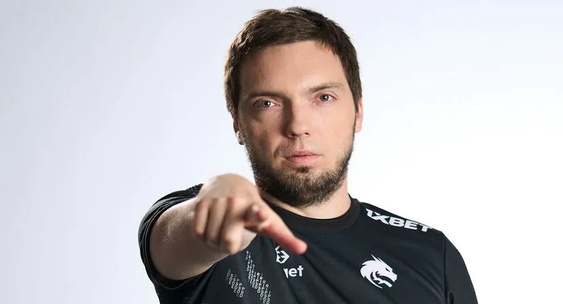The competitive landscape of Dota 2 is rarely short on drama, and the latest comes not from a thrilling last-minute comeback, but from a candid critique of tournament rules. Dmitry “Korb3n” Belov, the outspoken manager of renowned Dota 2 organizations Team Spirit and Yellow Submarine, recently voiced strong disapproval of the regulations governing BLAST Slam IV, labeling the organizers` approach as “clownish” and their rules “stupid.” His comments have reignited discussions about competitive integrity and the often-thorny issue of player eligibility in high-stakes esports events.
The `More Equal` Clause: Inconsistent Rules for a Level Playing Field?
According to Korb3n, the heart of the problem lies in an inconsistent application of rules—a situation he succinctly described as, “everyone is equal, but some are more equal.” This isn`t exactly a novel concept in human affairs, but in competitive esports, it can quickly erode trust. The specific point of contention revolves around rules concerning active players from one team potentially standing in for another. Korb3n argued that BLAST`s rules, in their essence, are fundamentally flawed for allowing an active player, already slated to participate in the main tournament with their primary team, to be eligible for another.
“BLAST organizers are a bit clownish. It`s the usual situation where everyone is equal, but some are more equal. That`s it. Some can, others cannot. To begin with, BLAST`s rules are, in essence, stupid. There shouldn`t be rules allowing an active player, who will be playing in the tournament, to play [for another team], hypothetically speaking. But to extricate themselves from their own rules, what did BLAST do? They said you can`t stand in. But if, for example, Yatoro was listed as a main player [for YeS], it would be allowed, you see? It`s an obvious absurdity, invented solely to get out of a situation they drove themselves into.”
The Yatoro Conundrum: A Case Study in Rule Ambiguity
He elaborated using a highly relevant scenario involving Ilya “Yatoro” Mulyarchuk, the star carry for Team Spirit. Team Spirit had already secured a direct invitation to the BLAST Slam IV group stage. However, Yatoro was, at one point, listed as a substitute for Yellow Submarine during the tournament`s qualifiers. Korb3n pointed out the apparent absurdity: if Yatoro had been officially declared a “main roster” player for Yellow Submarine, his participation might have been permissible. Yet, as a stand-in, it created a perceived conflict that, in Korb3n`s view, highlights the organizers` self-inflicted predicament. He underlined the perception that rules were being bent or reinterpreted to fit convenient narratives. Crucially, Yatoro did not ultimately play any matches for Yellow Submarine in the qualifiers.
Navigating Esports Regulations: A Thankless Task?
The manager`s frustration sheds light on the perpetual challenge faced by tournament organizers: crafting a rulebook that is robust, unambiguous, and fair to all participants. The dynamic nature of esports, with its frequent roster changes, stand-ins, and sometimes overlapping tournament schedules, creates a minefield of potential conflicts. Organizers are tasked with ensuring a level playing field while accommodating practicalities. However, when these efforts result in rules that appear to have arbitrary exceptions or are perceived as tailor-made to certain situations, the competitive integrity of the event can be called into question. It’s a thankless task, perhaps, but one where even minor missteps are magnified under the bright lights of competitive scrutiny.
The Cost of Inconsistency: Undermining Trust
Such controversies, regardless of their ultimate resolution, can have a tangible impact. They can breed cynicism among players and fans, undermining the trust essential for a healthy esports ecosystem. Teams invest significant resources—time, effort, and finances—into preparing for these tournaments. When the rulebook feels like a fluid document, subject to ad-hoc interpretation, it introduces an unwelcome variable into an already high-pressure environment. Korb3n`s final thought resonated with a universal sentiment: “The rule is stupid, and it shouldn`t exist at all.”
Towards a Clearer Future for Esports
As Yellow Submarine continues its fight for a LAN-final slot against Aurora Gaming, the conversation around BLAST Slam IV`s rule set is likely to persist. Korb3n`s candid remarks serve as a potent reminder that while the spectacle of esports captivates millions, the foundational elements of fair play, transparency, and consistent rule enforcement remain paramount. For the continued growth and legitimization of competitive gaming, a clear, equitable, and universally understood framework is not just desirable—it`s essential.









